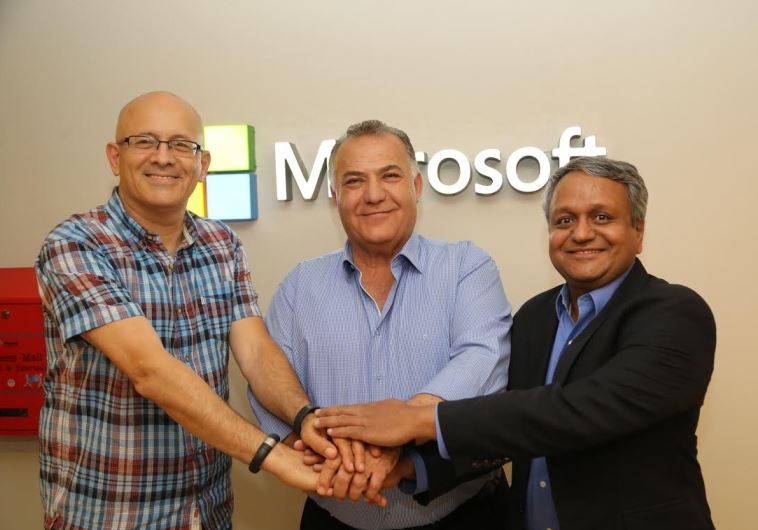With eye on Arab Israelis, Microsoft launches Nazareth R&D center
The new center will help ameliorate an oft-cited problem: large distances between Arab population centers and major high-tech employment hubs.
 From right: Microsoft Israel CEO Yoram Yaacobi, Nazareth Mayor Ali Salam and T.K. Rengarajan(photo credit: SIVAN FARAG)Updated:
From right: Microsoft Israel CEO Yoram Yaacobi, Nazareth Mayor Ali Salam and T.K. Rengarajan(photo credit: SIVAN FARAG)Updated: